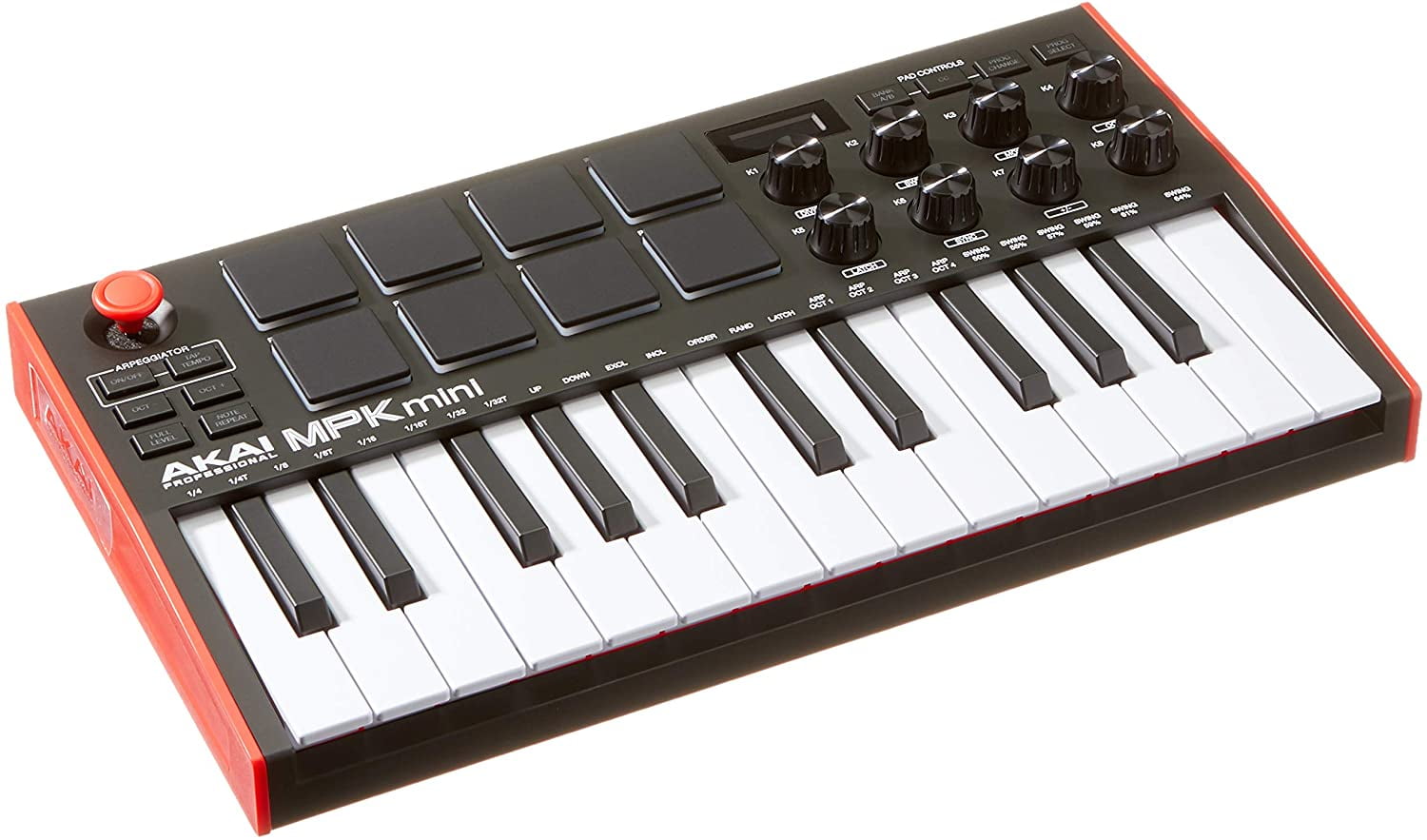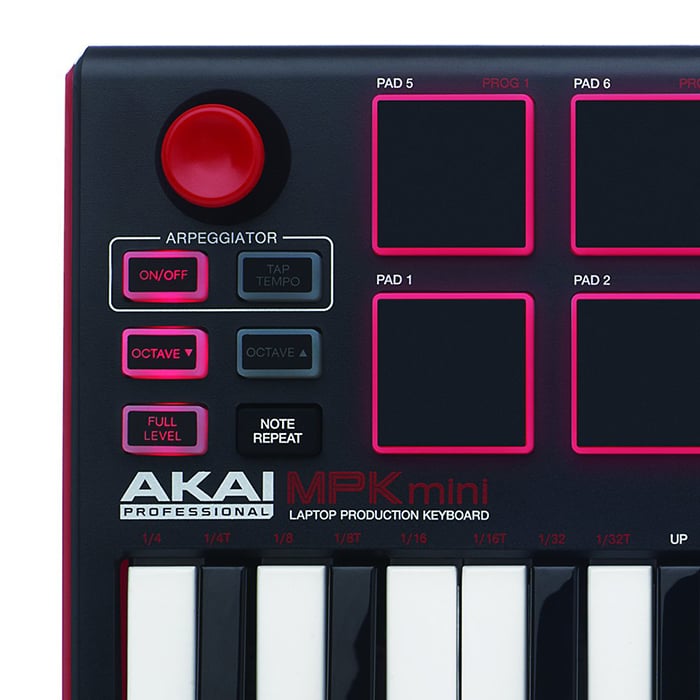

So you get audio I/O (including mic/instrument pres), MIDI, CV, and USB host and client ports (see the ‘Expansion’ box for more). As we’ve come to expect from modern MPCs, the rear panel is packed with connectivity options. There are enough buttons for modes, views and common operations to avoid most trips to the menu screen. This steers many of your interactions toward the 7‑inch touchscreen. Like the Live, there are only four rotary encoders plus a data dial. This can operate as a Note Repeat speed selector or mirror the encoders, but is most effective as a dedicated controller for the Touch FX plug‑in. You also get the Touch Strip, as first seen on the MPC Studio controller. For the best of both worlds you also get a 4x4 MPC pad grid, using the same compact pads as on the MPC One and MPC Studio. It’s a solid, plastic construction with a semi‑weighted keyboard and performance wheels along the front plane, then a gently raked rear section that contains the screen and all other controls. Physically, the MPC Key 61 is impressive. The result is a new instrument that can perform multiple roles: synth/sampler, performance instrument, live control hub, or beat production centre. Akai have built a new layer on top of the MPC OS which transforms the sound browsing and loading experience, and lets you treat the Key 61 like a workstation keyboard when you prefer. But it’s not simply an MPC Live bolted onto a MIDI keyboard. MPC‑wise there’s nothing left out it’s an MPC, and in fact has an upgraded hardware spec. The MPC Key 61 takes the latest generation of MPC and integrates it into a full‑size keyboard. It’s an MPC tuned for keyboard players, live performers and synth composers, and of course beat‑makers who share these roles. The MPC Key 61 takes this idea and runs with it. It was standalone and simple to fire up, and it had decent onboard sounds and synths. Almost by accident it became my go‑to synth and sound module. When Akai Pro’s MPC Live II was here on review I mostly had it sat on my desk on a laptop stand with a USB keyboard plugged in. All you need is your laptop and the MPK25.The MPC Key isn’t just an MPC with a keyboard, it’s a completely new species of production workstation.


Its small footprint can fit in your lap on the couch or on a plane, enabling you to create tracks whenever inspiration strikes.

Its smaller, more portable size makes the MPK25 the perfect travel companion. Based closely on the MPK49, the first keyboard ever to feature MPC pads, the MPK25 scales down the keyboard by 24 keys and retains the utility, capability, and flexibility that makes the MPK49 one of the world's hottest keyboards. The Akai Professional MPK25 is a portable keyboard controller with MPC production controls. Above photos do not represent actual details of unit. This is a used Akai MPK-25 midi keyboard in great condition and fully functional.


 0 kommentar(er)
0 kommentar(er)
